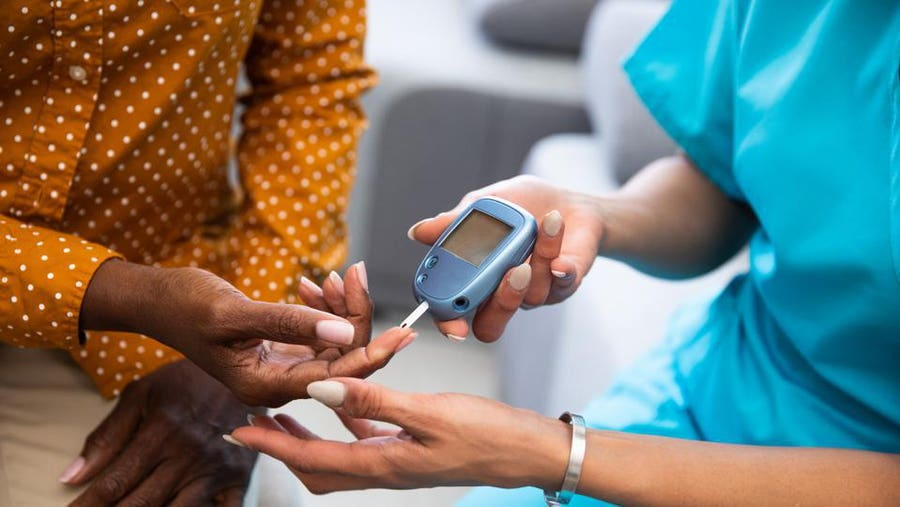When it comes to non-insulin medications that treat type 2 diabetes, there are many options. Read on to learn more about these medications, including which ones are right for you.
Non-insulin medications that treat type 2 diabetes
Several classes of drugs are used to treat type 2 diabetes.
Metformin is generally the recommended initial drug for type 2 diabetes unless there is a specific reason not to use it. Metformin is effective, safe, and inexpensive. It can also reduce the risk of cardiovascular events.
Metformin has a beneficial effect when it comes to lowering A1CTTrusted Source . It can also help control weight. It works by lowering the amount of sugar in your liver.
Other classes of diabetes medications are also available, each with their own risks and benefits.
Sulfonylurea
Drugs in this class include glipizide, glyburide, and glimepiride. These drugs may be cheaper but can cause hypoglycemia (low blood sugar) and weight gain.
Insulin sensitizer
This drug, pioglitazone, is safe and has no risk of hypoglycemia. However, it can increase the risk of cardiovascular disease and weight gain.
Glucagon-like peptide-1 (GLP-1) receptors.
Several forms of this drug are available, including exenatide (Byetta, Bydureon), liraglutide (Victoza, Saxenda), and dulaglutide (Trulicity). Some of these drugs are given by daily injection, and others by weekly injection.
Semglutides, like Ozempic, are also given by weekly injection.
The oral form of semaglutide (Rybelsus) can be taken once a day. This type of medicine is good and can benefit the heart and help lose weight. But it can also cause side effects, such as nausea and diarrhea.
Dipeptidyl peptidase-4 inhibitors (DPP-4 inhibitors)
Many drugs are found in this class. All are brand-name drugs, including sitagliptin (Januvia), saxagliptin (Onglyza), and linagliptin (Tradjenta).
They are all easy-to-use, well-tolerated oral medications that you take once a day. They have a mild effect on lowering blood sugar levels. In particular, they reduce blood sugar levels after a meal.
Alpha-glucosidase inhibitor
This drug, acarbose, is rarely used. Reduces carbohydrate absorption, but gastrointestinal side effects are common.
Sodium-glucose cotransporter-2 inhibitors (SGLT-2 inhibitors)
This is the newest class of diabetes drugs. These drugs lower blood sugar levels by removing sugar from the body through urine.
There is growing evidence Trusted Source that this class provides cardiovascular benefits as well as better blood glucose control.
Research also suggests SGLT-2 inhibitors have benefits for the kidneys, such as slowing the progression of chronic kidney disease. Drugs in this class are all brand names, including empagliflozin (Jardiance), dapagliflozin (Farxiga), canagliflozin (Invokana), and ertugliflozin (Steglatro).
What factors does my doctor consider when recommending treatment for type 2 diabetes?
Type 2 diabetes is a complex, chronic condition. Keeping it under control means using multiple strategies to reduce risk while also reaching your goal of blood sugar control.
To decide which treatment plan will work best for you, your doctor will consider the following factors:
heart disease, which includes a history of heart attack, stroke, or heart failure
chronic kidney disease
the risk of low blood sugar with any treatment option
possible side effects of treatment
Your weight and the possibility of treatment affecting weight
cost of medicine and insurance
your personal preferences and whether you think you will be able to stick with the treatment plan
Your doctor will also consider your A1C test results, which provide information about your blood sugar levels over the past 3 months.
For most people, the goal of treatment is to lower your A1C below 7%. This goal is set by the American Diabetes Association guidelines, but your doctor will help you set the right A1C goal for you.
Takeaway
Several types of non-insulin medications are available for type 2 diabetes. You will most likely be prescribed Metformin initially, but other options are available depending on your individual needs.
Your doctor will be able to decide the best medicine for you. They will also emphasize that along with medication, lifestyle changes are an important part of your treatment plan for type 2 diabetes.



